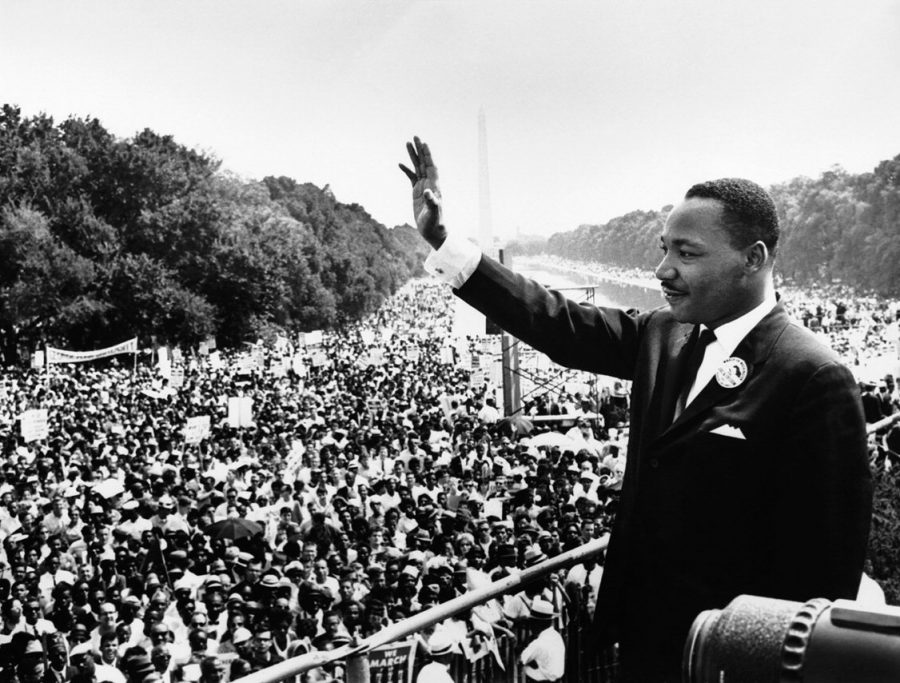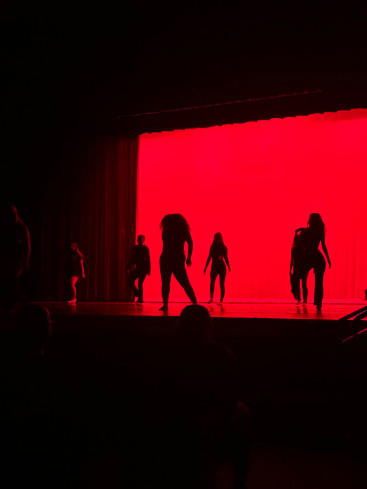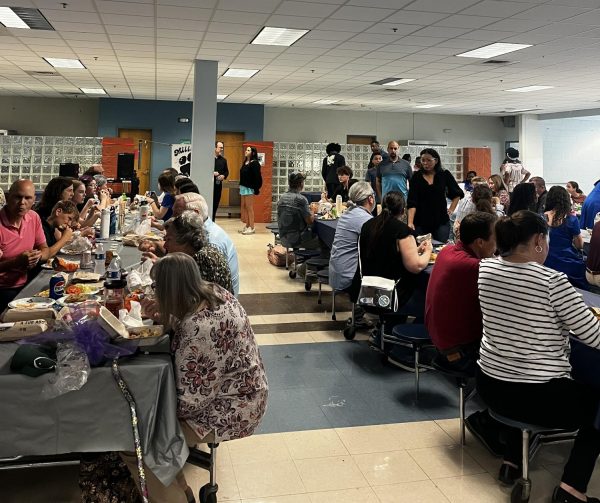Remembering the infamous MLK
Waving to the hundreds of thousands of people who marched with him, Martin Luther King, Jr. finishes up his famous “I Have A Dream” speech in Washington, D.C. King was a profound leader during the Civil Rights Era, demanding equal rights to African Americans as those given to whites.
January 21, 2019
Martin Luther King, Jr. Day is a national holiday being celebrated today, January 21. Today we can sit back and visualize where our country would be without him and the impact he made on the American people in the 1960s. Martin Luther King, Jr. was an astounding leader and activist who is known worldwide for his great achievements during the Civil Rights Era. He traveled throughout the United States, using peaceful, nonviolent tactics to demand the cessation of discrimination and segregation. Now we remember him today, not only as just a black man who wrote a famous speech, but as the man who changed America and the world for good.
King grew up in a profoundly segregated part of Georgia and graduated high school as a young teenager. For college, he attended Morehouse College, Crozer Theological Seminary, and Boston University. After college, he became the pastor at Dexter Avenue Baptist Church in Montgomery, Alabama. King’s first protest was the Montgomery bus boycott, which was a campaign against segregation in the public transit system. Dexter Avenue Baptist was the true backbone of this boycott and helped jumpstart King’s passion for social and political activism.
After the conclusion of the bus boycott, ending in December of 1956, King was named the president of the Southern Christian Leadership Conference, which was formed to provide a platform for Civil Rights activist leaders. This conference commenced King’s traveling across the country. Dr. King traveled over 6 million miles to spread his wisdom, fight for his people and validate the American dream to those who felt doubt. As we all know, Martin Luther King, Jr. is best known for his speech after the March on Washington, the “I Have A Dream” speech. He spoke at the Lincoln Memorial on August 23, 1963, and called for civil rights for the oppressed and an end to racism.
Not long after his history-making speech, King was awarded the Nobel Peace Prize on October 14, 1964. He was 35 years old at the time, making him the youngest recipient of the reward until 2014.
Junior Olivia Denbo advocated, “MLK played a crucial role in taking steps towards racial equality, and I think it’s important to remember that we have a responsibility to continue that work. We should be mindful of the experiences of others, call out racism, and stay politically informed so we can use our voices in support of equality.” King led a great life. A life where he demonstrated how the power of a community, along with a strong leader, can bring about a vast change in the world. Today we commemorate his achievements and remind ourselves that our generation has a duty of our own now, which is to carry on his legacy in a world where issues on race, gender, and violence have resurfaced.












